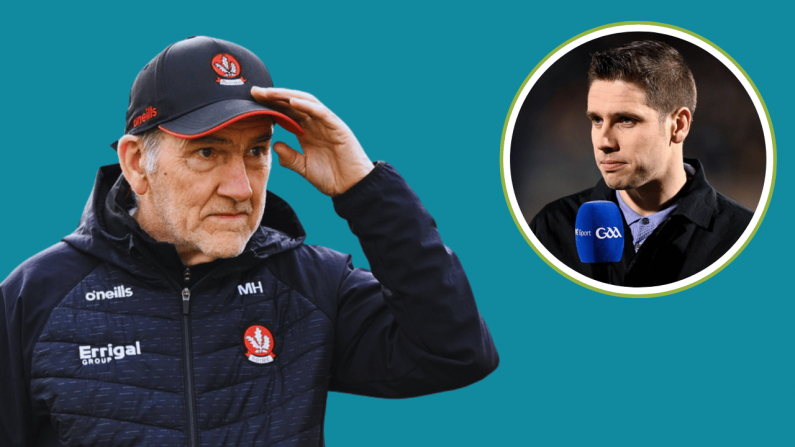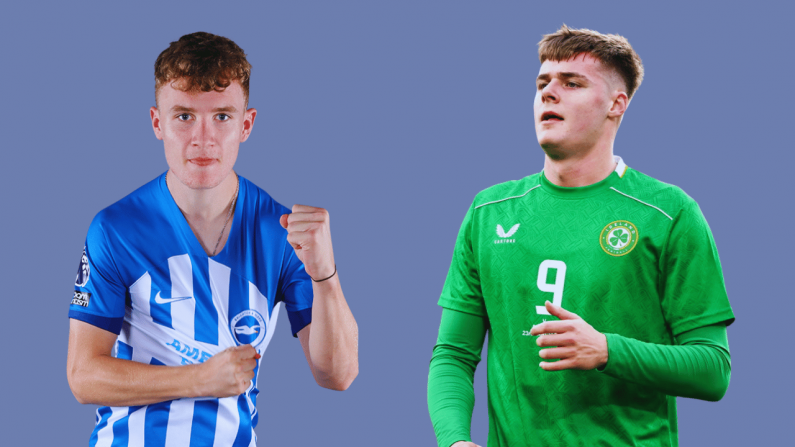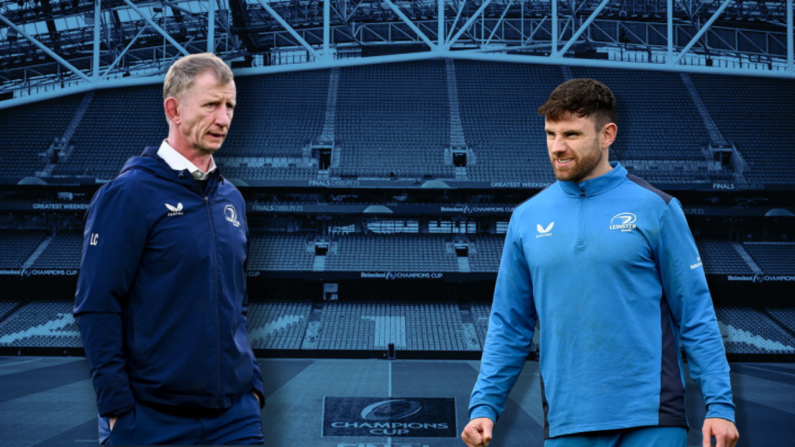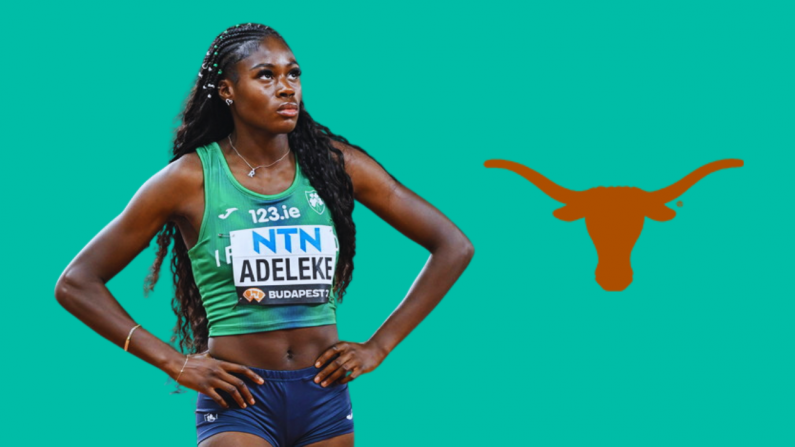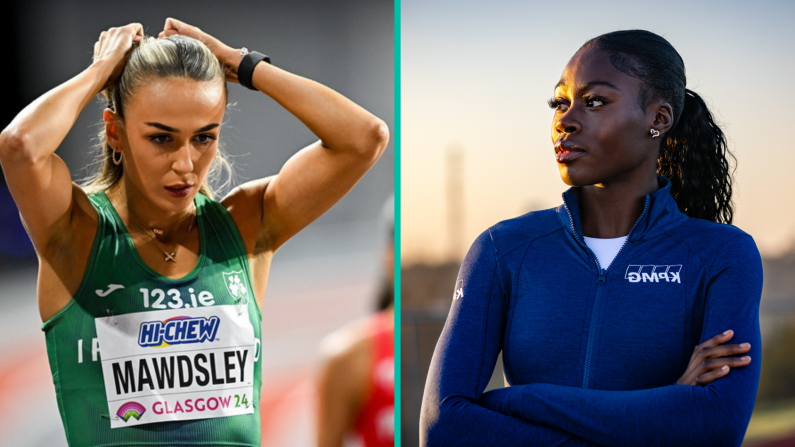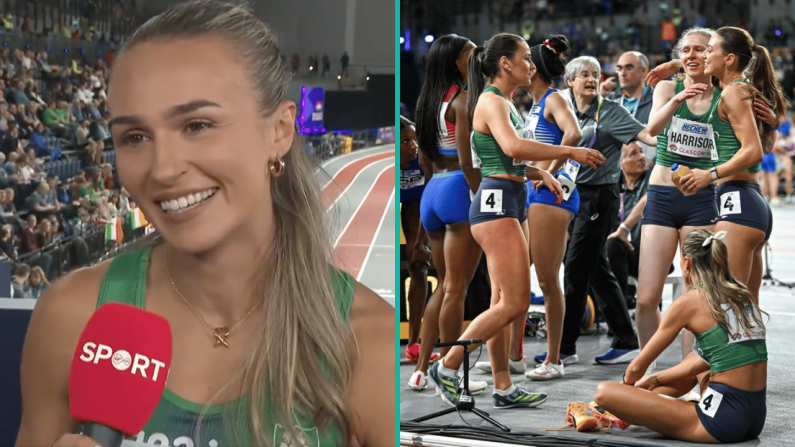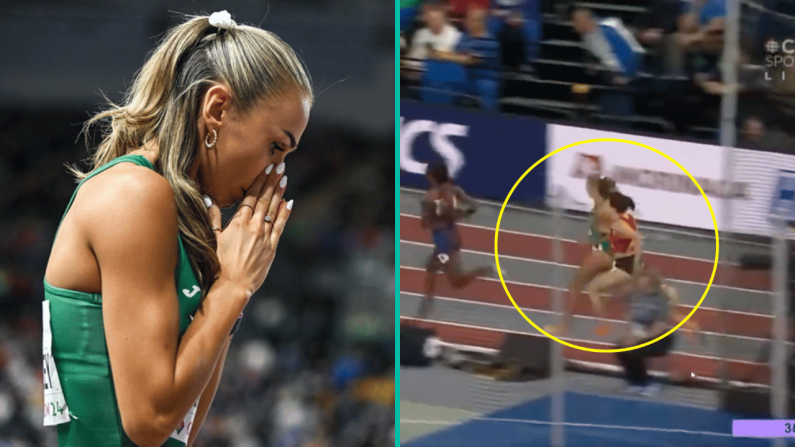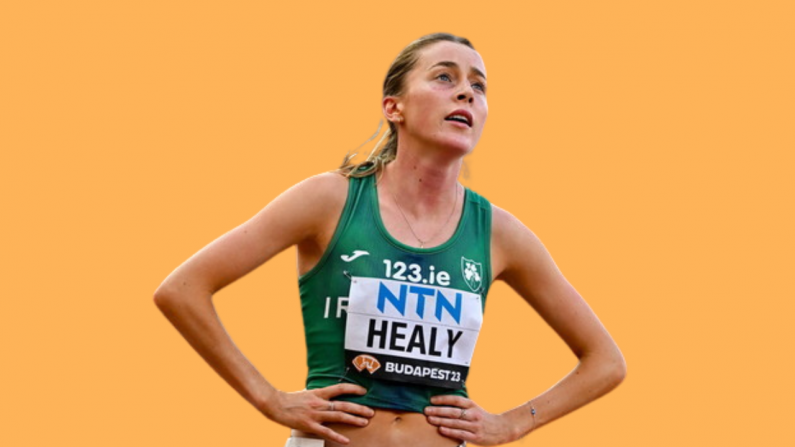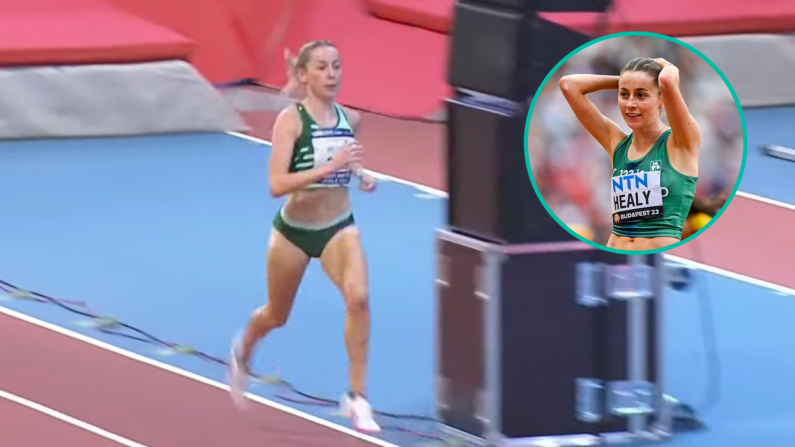Louis B Meyer and Sam Goldwyn treated the Los Angeles Games as one big casting couch.
A quirky by-product of Los Angeles hosting the Olympic Games was that successful athletes were inundated with offers from Hollywood moguls.
Not long after collecting his second Olympic gold medal, Pat O'Callaghan was invited on a tour of MGM studios where he was offered the role of Tarzan.
The part of Tarzan - the noble savage - demanded upper-body strength and a chiseled physique. De Niro-esque acting ability wasn't necessary.
Had he accepted, he'd be acting alongside Maureen O'Sullivan, who was born in that famous nursery of Hollywood actors, Boyle in Roscommon.
@lapidismos No lo creí cuando m lo dijiste,"Johnny Weismuller robó los fusibles" pic.twitter.com/ymFo2vTJ7t
— Half (@LicoryTristeza) August 19, 2016
O'Callaghan weighed up the offer and decided the life wasn't for him. The role was taken by swimming gold medalist Johnny Weissmuller and O'Callaghan went back to Clonmel.
THE IRISH WHALES
It's hard to credit these days but, at the turn of the twentieth century, the Irish were the aristocrats of the hammer throw. What the Cubans are to boxing, what the Jamaicans are to sprinting, Ireland was to the hammer.
Our success in the event doesn't even come close to beginning with O'Callaghan. Ireland's reputation in the event was built on the success of the 'Irish Whales', a gang of Irish-born athletes who represented America and Canada in Olympic Games between 1896 and 1924.
What strikes one about the 'Irish Whales' is the sameyness of their biographies.
With the exception of Simon Gillis, who was born in Nova Scotia to Irish parents, they all emigrated to America in their early twenties (and in one instance, late teens), they all trained in the Irish American Athletic Club in Queens, and they all worked for the NYPD, save for Con Walsh who moved to Seattle and joined the Seattle Police Department. John Flanagan and Paddy Ryan returned to Ireland.
This defiant clique of athletes won buckets of Olympic medals, became internationally famous, and were almost responsible for an Anglo-American diplomatic incident following the refusal to 'dip the US flag' in honour of King George at the opening ceremony in London in 1908.
Tradition dictated that Olympic teams briefly dip their flag at when parading past the hosts' leaders box at the opening ceremony. In 1908, shot-putter Ralph Rose failed to dip the flag at that moment, allegedly under pressure from the vocal Irish Whales. Reigning gold medallist in the hammer throw Martin Sheridan uttered the famous phrase "this flag dips for no earthly King", a quote which was then widely misattributed to Rose.
Around the world, the gesture was regarded as ugly, arrogant Americanism. In actual fact, it had more to do with Irish grievance.
Sheridan, born in Bohola in Mayo, won one gold medal in 1904 in Missouri and a further two at the 1906 Games in Athens. Matthew McGrath, from Nenagh, won Olympic gold in 1912 in Stockholm. Pat McDonnell was born in Clare in 1878. He emigrated to New York in 1901, where the officials at Ellis Island misheard his surname as 'McDonald'. Pat McDonald won gold medals Stockholm and in 1920 in Antwerp.
The most illustrious of the lot, John Flanagan, the first athlete to win gold medals in three successive Olympics (1900, 1904, 1908), was one of only two of the Irish Whales to return to Ireland.
On returning home, he was to coach Dr. Pat O'Callaghan.
'I Have Seen Too Many Irish Boys Shot Down In Front Of Their Homes To Be Willing To Represent The British'
The Tipperary Star write that on first seeing a hammer being thrown, O'Callaghan sourced an old canon-ball from in Macroom Castle, fitted a handle and a wire onto it and began training for the hammer throw on his family farm.
Born in Kanturk in 1905, O'Callaghan excelled at every sport he tried. In particular, he played Gaelic football to a high level, his uncle Tim Vaughan having already lined out for Cork in the 1890s. He was good at school too. At 15, he won a scholarship to the Patrician Academy in Mallow and thereafter studied medicine at the Royal College of Surgeons. Flaunting 'the ban', he tried rugby while studying in Dublin.
It was 1926 before he first took up the hammer throw. By 1927, he was national champion, beating reigning champion, Tipp-born Bill Britton. He retained the title the following year qualifying for the Olympic Games in the progress.
Two O'Callaghan's participated in the 1928 Olympics in Amsterdam. Con O'Callaghan represented Ireland in the decathlon.
Pat O'Callaghan was deemed an outsider at the beginning, not fancied to reach the final six. The hammer event was run off on the 30 July, 1928. After the opening round of throws, the leader was Oissian Skoeld of Sweden with a throw of 168'3", with Edmond Black from the USA in second place. On his second throw, Pat casually picked up the Swedes hammer and tossed it 168'7". No one matched it and O'Callaghan won gold.
It was a historic moment. O'Callaghan became the first Irishman to win Olympic gold since the foundation of the Irish Free State six years earlier. The tricolour was raised and Amhran na bhFiann was played for the first time. The sense of the nation was very strong in these guys. It was very important to O'Callaghan that he was taking the medal back to Ireland. Recognition on the world stage was very important for a young nation state.
I am glad of my victory, not of the victory itself, but for the fact that the world has been shown that Ireland has a flag, that Ireland has a national anthem, and in fact that we have a nationality.
Only days afterwards, the British thought it sporting to invite him to compete for the British Empire against America in a hammer throw meet on 11 August.
His answer displeased them and he created, in the words of the San Jose News reporter Alan J Gould, 'something of a sensation in the manner of his refusal'.
I have seen too many Irish boys shot down in front of their homes to be willing to represent the British. And I know too well how America has provided homes for the Irish, to compete against her.
He returned to Ireland where he cleaned up at national championship level for a few years, dominating the hammer throw the way Christy O'Connor used to dominate the Irish PGA. It being the era when talented all-rounders could make hay in any number of disciplines, O'Callaghan also won national titles in the shot putt, the discuss and the long jump.
IRELAND'S FINEST OLYMPIC HOUR
In one day in Los Angeles in 1932, Ireland won more Olympic gold medals than they'd manage in the next sixty years.
Tisdall was Nenagh-raised and Shrewsbury educated and made his name as a sprinter at Cambridge University. He had a refined upper-class English accent and was asked to compete for Britain at the Olympics. He refused on the excellent grounds that England wasn't his country. Tisdall shocked the field to win the 400m hurdles.
After winning, Tisdall broke away from the well-wishers and headed to the hammer throwing ring to support his LA roommate Pat O'Callaghan. The reigning Olympic champion, O'Callaghan was only second after a few throws. He was having trouble with the spikes on his boots. Tisdall helped O'Callaghan file his spikes down.
He said to me 'well, I've got two throws to go and I can't get the revolutions going because the spikes are too long. I'm trying to file them down. I'm wondering can you come and give me a hand.' Well, that was just the relief I needed. Something to do. And I was thrilled and we went down and sat over there somewhere, filing his spikes down. While the whole stadium watched (laughed) I think we were holding up the Olympic Games.
On his final throw, O'Callaghan flung the hammer 53.92, past the best throw of the leader Ville Porhola.
On returning home, there was a cavalcade through Dublin. The decorated duo dined with Dev at a big bash in the Gresham Hotel. The menu included items such as 'Grape Fruit Tisdall' and 'Pudding Souffle O'Callaghan'.
HITLER TAKES AN INTEREST
Ireland's pre-eminence in the hammer throw attracted the attention of one 'energetic' European leader who was anxious his athletes wouldn't disgrace the country on home soil in 1936.
Adolf Hitler was struck by the Irish prowess in the event and arranged for a camera crew to travel to Ireland to film their training regime.
Brian Walsh, the curator of an exhibition entitled 'Patriot Games: Ireland and the Olympics, 1896-2010', stumbled upon a brief snippet of an article in the Irish Independent from 1934 which disclosed that the Germans had brought O'Callaghan over to Hamburg to study his throwing technique and X-ray his shoulders and legs.
It made no difference to O'Callaghan that the Germans were studying his technique. Thanks to a bitter political wrangle, he would not be defending his Olympic gold in Berlin.
Following independence, the National Athletic and Cycling Association of Ireland (NACAI) governed athletics in Ireland. Crucially, they maintained jurisdiction over the whole of Ireland, including the partitioned six counties.
After 1932, the British AAA asserted their claim over athletes from Northern Ireland. The IAAF sided with the British and disqualified the NACAI.
Ireland did not participate in the 1936 Olympics, not in protest at Hitler's racist rhetoric, but following a dispute with the Brits over Northern Ireland.
O'Callaghan, an ardent opponent of partition, never participated in another international competition.
He was invited to the Olympics in Berlin as a spectator, being received by various German officials including the Fuhrer himself.
Tisdall and O'Callaghan returned to the stadium in LA for a documentary made sometime in the 1980s (perhaps around the LA games in 1984).
There's a great image of the pair walked around the stadium 50 years later. The voiceover reads:
They were never allowed another Olympics. Sport surrendered its innocence and politics denied Ireland her place at the Games in Berlin. But the regrets quickly passed for down the years lingered the memory of that afternoon in 1932 when a flag flew and a band played and the music soared out across the City of the Angels.


